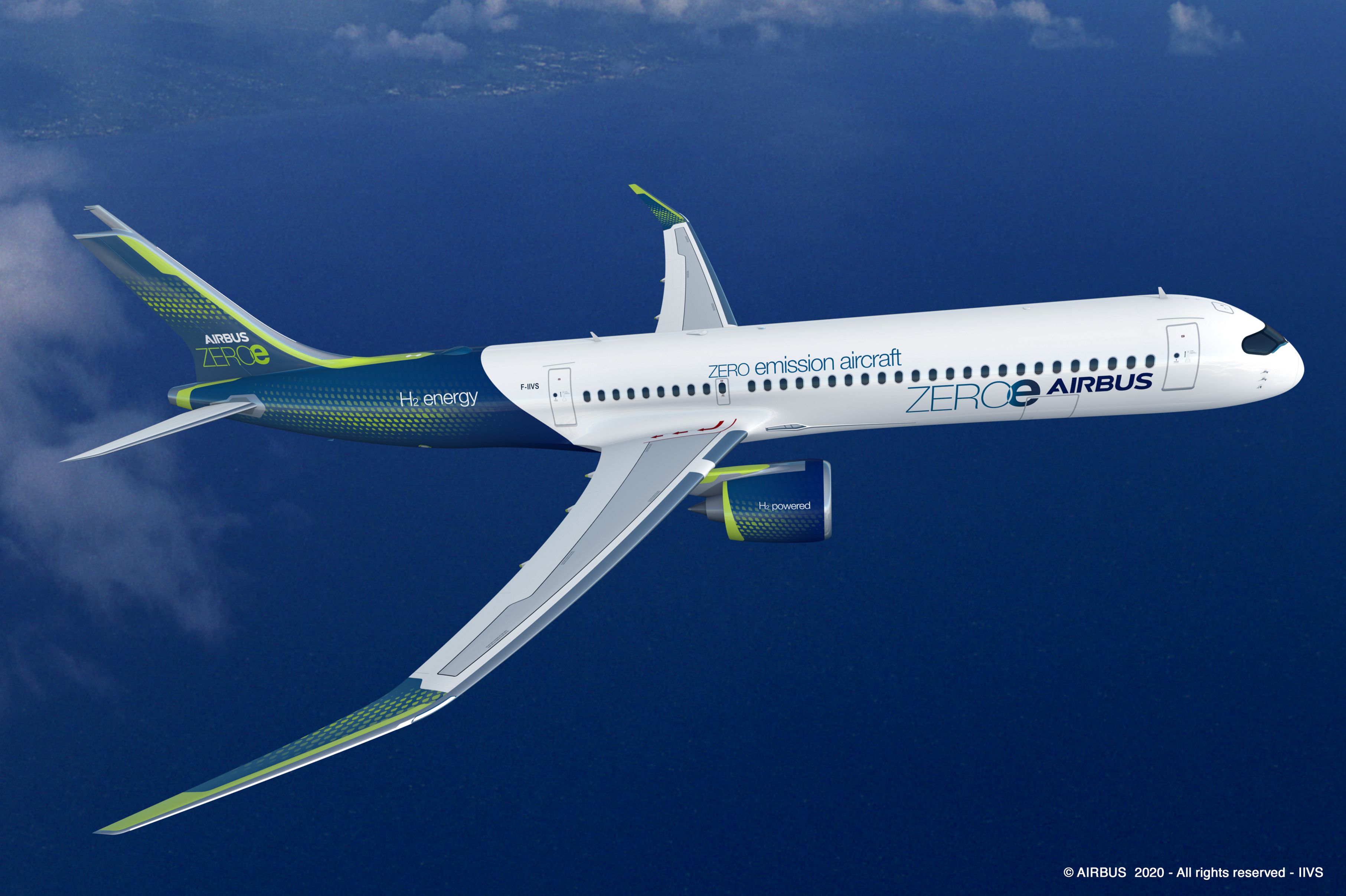Click Here to View This Page on Production Frontend
Click Here to Export Node Content
Click Here to View Printer-Friendly Version (Raw Backend)
Note: front-end display has links to styled print versions.
Content Node ID: 419211
Air New Zealand is supporting Airbus’s efforts to develop hydrogen-powered airliners through a joint research initiative into how these could help the Asia-Pacific carrier to meet its goal of achieving net-zero carbon emissions by 2050. Under a memorandum of understanding (MoU) signed on September 16, the airline will analyze how the use of hydrogen propulsion would change its service network, operations, and infrastructure arrangements, with Airbus providing performance requirements and ground operations characteristics for the new aircraft.
Twelve months ago, Airbus unveiled three concepts for possible hydrogen-powered airliners that it said could be ready to enter service by 2035. Under a project called Zero E, Airbus expects to make a final decision on the most suitable hydrogen technology platform in 2024 and be ready to fly an initial technology demonstrator in 2025. This year, engineers have been working to develop a hydrogen ground demonstrator ready to help it to address complex technology risks around the ecosystem for hydrogen power, such as the fuel’s volume and cryogenic (low temperature) characteristics.
The most novel of the three designs shows a blended wing airframe that Airbus indicated would be able to carry up to 200 passengers on flights of around 2,300 miles. The exceptionally wide fuselage, in which the wing merges with the main section of the aircraft, would provide space for a cabin, as well as for hydrogen storage and distribution.
Airbus also presented a more conventional narrowbody model that would carry between 120 and 200 passengers on sectors of around 2,000 nm. The propulsion system would be based on a pair of modified gas turbine engines powered by liquid hydrogen that would be stored and distributed via tanks located behind the rear pressure bulkhead. The design features swept-back outer wing surfaces.
The third design is a 100-seat twin turboprop. It also would feature modified gas turbines fueled by hydrogen and would have a projected range of up to around 1,000 nm.
In view of the range projections for the Zero E concepts, the aircraft would support all of Air New Zealand’s domestic flight network. The hydrogen airliners might also be deployed on services to cities on Australia’s east and south coasts, as well as to some Pacific Ocean destinations such as the Cook Islands and Fiji.
According to the carrier’s CEO, Greg Foran, it believes it could introduce hydrogen-powered aircraft on domestic and regional flights in the next decade. “New Zealand has a unique opportunity to be a world leader in the adoption of zero-emissions aircraft, given the country’s commitment to renewable energy which can be used to generate green hydrogen and our connected regional air network,” he said.
The airline is also evaluating battery-powered electric aircraft as possible options for shorter domestic routes, as well as sustainable aviation fuel for its long-haul operations. “This research will help to inform future decision making as we work to decarbonize the airline,” Foran explained.
Capt. David Morgan, Air New Zealand’s chief operational integrity and safety officer, said the terms of the MoU give the airline an opportunity to help design and define how the planned Zero E aircraft might fit its operational needs. “We’ll be working closely with Airbus to understand opportunities and challenges, including achievable flying range and what ground infrastructure or logistics changes may be required to implement this technology New Zealand," he added.
Airbus Asia-Pacific president Anand Stanley said that the joint study will generate feedback on airline expectations and preferences for the configuration and performance of the new airliners. He explained that Air New Zealand had been invited to cooperate due to its strong commitment to environmental sustainability, which he said is closely aligned to the airframer’s own objectives for decarbonization.
